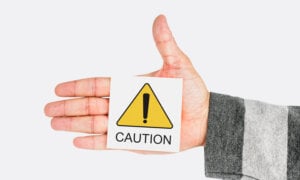

On Tuesday I linked to a poll of some 200 institutional investors who were asked about their outlook for global equity markets. The smart money seems to be evenly split between buyers, sellers, holders, and those who “are confused and doing nothing.”
It’s funny that investors who don’t react to market swings are said to be doing nothing. This is one of the enduring myths about index investing: that carefully building a diversified, all-weather portfolio for the long term makes you a naive fool because you’re not constantly “repositioning.”
Staying the course is not “doing nothing.” On the contrary, it’s doing something thoughtfully and productively rather than constantly reacting to the market. The first three quarters of 2011 have been a marvellous example of how diversifying and ignoring forecasts can work so well during times of market stress. To see this idea in action, let’s do a Q3 check-in with the Complete Couch Potato.
No, everything does not go down together
Dumping bonds was supposed to be part of the “reposition your portfolio for today’s market” strategy—actually it’s been a refrain for about three years now. And once again, the bonds that everyone hates because “interest rates are guaranteed to go up” have proven the fortune tellers dead wrong. The iShares DEX Universe Bond Index Fund (XBB), which makes up 30% of the Complete Couch Potato, has returned 7.20% on the year (all figures as of September 30).
Another 10% of the portfolio is in real-return bonds, which historically have some negative correlation with equities, and even a low correlation with nominal bonds. That’s why they make such an effective diversifier. So far this year the iShares DEX Real Return Bond Index Fund (XRB) is up 9.53%.
The portfolio allocates 10% to real estate, which also has a rather low correlation with the overall equity markets. Sure enough, while the S&P/TSX Composite is down over 12% so far this year, the BMO Equal Weight REITs Index ETF (ZRE) is up almost 6%.
Equity markets in Canada, the US and overseas are all deep in the red so far this year. But they’ve fallen to different degrees and at different rates, which means that global diversification has smoothed out the volatility. The headlines have focused on Europe, but emerging markets (“the only place you’re going to see growth”) have been the big losers, down 22% so far. Stocks in the US (you know, the country you were supposed to avoid because of their huge debt problems) have lost less than half as much and are on track to outperform Canada for the first time in years.
To add another layer of diversification, the Complete Couch Potato avoids currency hedging for its foreign holdings. This has provided a huge cushion during the bear market, as the US dollar is up more than 11% against the loonie since May 1, and the euro (surprise!) is 8% higher than it was in early January. As a result, the Vanguard Total Stock Market (VTI) is down almost 10% in US dollars, but has fallen just 5.26% for Canadians. The Vanguard Total International Stock (VXUS) is down 18% in its native currencies, compared with 13.82% in Canadian dollars. (Thanks to Justin Bender of PWL Capital in Toronto for these figures.)
How you did if you “did nothing”
Here’s how all of these elements have come together in the Complete Couch Potato the first nine months of 2011:
| Fund |
Ticker |
|
YTD return |
| iShares S&P/TSX Composite |
XIC |
20% |
–12.02% |
| Vanguard Total Stock Market |
VTI |
15% |
–5.26% |
| Vanguard Total Int’l Stock Market |
VXUS |
15% |
–13.82% |
| BMO Equal Weight REITs |
ZRE |
10% |
5.77% |
| iShares DEX Real-Return Bond |
XRB |
10% |
9.53% |
| iShares DEX Universe Bond |
XBB |
30% |
7.20% |
| Total |
|
|
–1.6% |
.
As the media scream at you to do something to protect your investments, this simple, balanced, diversified portfolio is down a mere 1.6%. Even amid all the gloom of 2011, do you think you would have been tempted to abandon your plan after such a trivial loss?
My point is not that 2011 has been a particularly good year to hold bonds, or real estate, or to diversify globally, or to have exposure to foreign currencies. I’m saying it’s always a good year to diversify in this way. By getting exposure to all these asset classes, all the time, you’re prepared for just about anything the markets will throw at you. Next year, if stocks rally and rising interest rates finally do take a bite out of bonds, you’re equipped for that, too.
Diversification is not perfect, and it doesn’t guarantee positive returns every year. But it is still the best tool we have.











